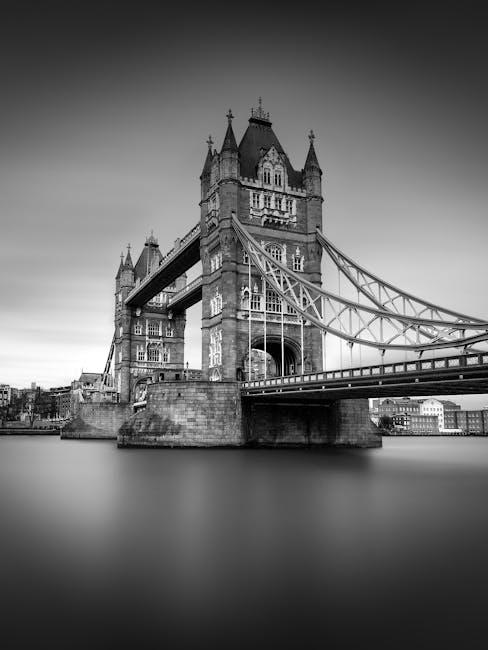In the grand tapestry of cinematic history, certain films stand as towering pillars that redefine the very essence of storytelling on screen. These are not merely movies; they are groundbreaking experiences that challenge conventions, shatter expectations, and pave new paths for narrative expression. As we delve into the realm of must-watch films that revolutionized storytelling, we embark on a journey through time and imagination, exploring the visionary works that have reshaped our understanding of cinema. With each frame and dialogue, these masterpieces have left an indelible mark, influencing generations of filmmakers and captivating audiences with their audacious creativity. Join us as we unravel the stories behind these iconic films, each a testament to the power of innovation and the boundless possibilities of the silver screen.
Cinematic Trailblazers Redefining Narrative Boundaries
In the ever-evolving landscape of cinema, certain films stand as beacons of innovation, challenging and reshaping the conventional storytelling frameworks. These groundbreaking works have not only captivated audiences but also set new benchmarks for narrative creativity. Christopher Nolan’s Memento is a masterclass in non-linear storytelling, weaving a complex tapestry of memory and perception that keeps viewers on the edge of their seats. Charlie Kaufman, with his unique flair, presents Eternal Sunshine of the Spotless Mind, a poignant exploration of love and memory that defies traditional narrative arcs.
- Stanley Kubrick’s 2001: A Space Odyssey: A visual and philosophical odyssey that redefined sci-fi storytelling.
- Quentin Tarantino’s Pulp Fiction: Revolutionized narrative structure with its intertwined tales and eclectic dialogue.
- Wong Kar-wai’s In the Mood for Love: A mesmerizing exploration of unspoken emotions and temporal dislocation.
These films, with their innovative approaches, have not only redefined the narrative boundaries but have also inspired countless filmmakers to think outside the box, paving the way for a new era of cinematic storytelling.

Visual Storytelling Innovations That Captivated Audiences
In the realm of cinematic artistry, certain films have transcended traditional storytelling, harnessing the power of visual innovation to captivate audiences and redefine the medium. These groundbreaking works have not only pushed the boundaries of what can be achieved on screen but have also set new standards for filmmakers around the world. Among these, several standout examples have left an indelible mark on the industry:
- Inception: Christopher Nolan’s mind-bending masterpiece employed intricate visual effects and practical set designs to depict the complex architecture of dreams. The film’s use of gravity-defying sequences and layered realities has inspired a new wave of sci-fi storytelling.
- Avatar: James Cameron’s epic reimagined the use of 3D technology and motion capture, creating a lush, immersive world that transported audiences to the alien landscapes of Pandora. Its groundbreaking visuals have set a benchmark for CGI in cinema.
- Mad Max: Fury Road: With its kinetic camera work and vibrant color palette, George Miller’s action-packed spectacle turned the dystopian genre on its head. The film’s innovative use of practical effects and minimal CGI brought a raw, visceral energy to the screen.
These films exemplify how visionary directors and cutting-edge technology can come together to craft unforgettable cinematic experiences. Their influence continues to resonate, inspiring new generations of filmmakers to explore the endless possibilities of visual storytelling.

Iconic Directors Who Transformed Film Language
Throughout cinematic history, a select few directors have dared to push the boundaries of storytelling, forever altering the landscape of film language. These visionaries have not only crafted unforgettable films but have also redefined the way stories are perceived and experienced on screen. Here are some of the most groundbreaking directors whose work you simply must explore:
- Alfred Hitchcock – The master of suspense, Hitchcock’s innovative use of camera angles and psychological depth in films like Psycho and Vertigo set new standards for thriller and horror genres.
- Stanley Kubrick – Known for his meticulous attention to detail and profound narratives, Kubrick’s masterpieces such as 2001: A Space Odyssey and A Clockwork Orange revolutionized visual storytelling and thematic exploration.
- Akira Kurosawa – Kurosawa’s ability to blend Western and Eastern cinematic techniques is evident in classics like Seven Samurai and Rashomon, which have influenced countless filmmakers around the world.
- Federico Fellini – With his distinctive style and surreal imagery, Fellini’s works, including La Dolce Vita and 8½, challenged conventional narrative structures and expanded the possibilities of film as an art form.
- Quentin Tarantino – Tarantino’s bold, nonlinear storytelling and homage to different genres in films such as Pulp Fiction and Kill Bill have made him a defining figure in contemporary cinema.

Essential Viewing: Films That Shaped Modern Cinema
Throughout the history of cinema, certain films have transcended their medium, revolutionizing storytelling and leaving an indelible mark on the art of filmmaking. These masterpieces not only entertained audiences but also inspired generations of filmmakers to push the boundaries of visual storytelling. From the groundbreaking use of special effects to the innovative narrative structures, these films have become essential viewing for anyone interested in the evolution of cinema.
- Citizen Kane – Often hailed as the greatest film ever made, Orson Welles’ masterpiece introduced innovative techniques such as deep focus cinematography and non-linear storytelling, reshaping the cinematic landscape.
- Pulp Fiction – Quentin Tarantino’s cult classic redefined genre conventions with its witty dialogue and non-linear plot, influencing a new wave of independent filmmakers.
- The Matrix – The Wachowskis’ sci-fi epic revolutionized special effects with its groundbreaking use of “bullet time” and philosophical storytelling, merging action with thought-provoking themes.
- 2001: A Space Odyssey – Stanley Kubrick’s visionary film set a new standard for visual effects and ambitious narrative scope, exploring humanity’s place in the universe with unparalleled artistry.
- Star Wars – George Lucas’ space opera revitalized the sci-fi genre, blending mythological storytelling with cutting-edge technology, creating a cultural phenomenon that continues to influence filmmakers worldwide.



